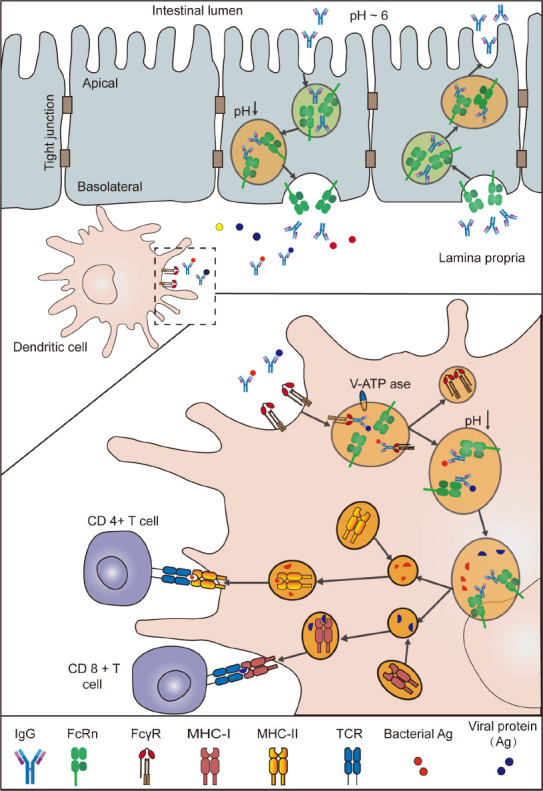Figure 2.

FcRn mediates the transport and immune response of IgG and IgG-IC in the intestine.
In the adult intestine, both intestinal epithelial cells and antigen-presenting cells in the lamina propria express FcRn. Enterocytes translocate intracellular IgG to the intestinal lumen, where it binds to antigen. IgG immune complexes (IgG-IC) are then transported to dendritic cells in the lamina propria. IgG-IC binds to FcγR on the surface of DCs and enters the cells via receptor-mediated endocytosis, forming vesicles. During vesicle maturation, through the recruitment of vesicular ATPase (V-ATPase), the vesicles become more acidic (pH ~6.0), and IgG dissociates from FcγR and binds to FcRn. Sorting of IgG-IC is completed in the presence of FcRn and antigen is loaded onto major histocompatibility complex (MHC)-I and MHC-II, thus activating CD8+ T cells and CD4+ T cells, respectively, and initiating T-cell-mediated adaptive immunity. FcRn: Neonatal Fc receptor; IgG: immunoglobulin G; TCR: T-cell receptor.
